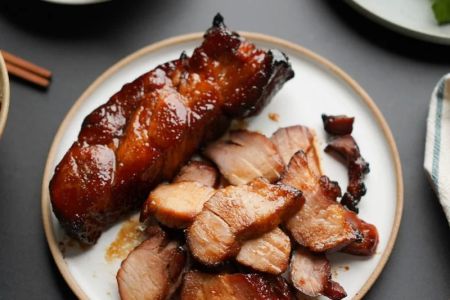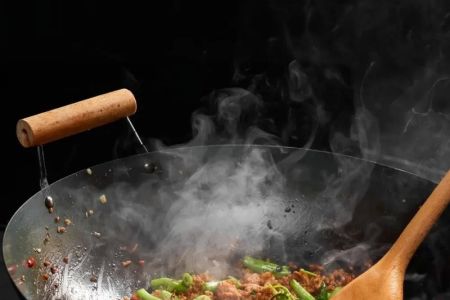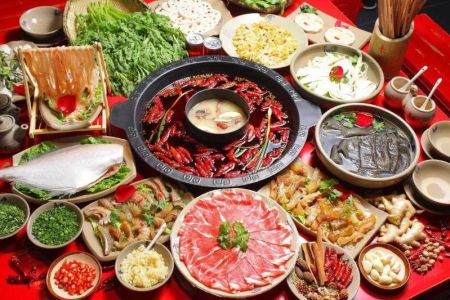Understanding Chinese Restaurant Etiquette: Tips for a Great Dining Experience
1. The Importance of Chinese Dining Etiquette
Having a meal at a Chinese restaurant is more than just about the food; it's about the experience, the traditions, and the respect for cultural customs. If you're dining at a Chinese restaurant in the United States, it's important to remember that Chinese dining etiquette might differ from what you're accustomed to. Having a basic understanding of Chinese restaurant etiquette not only makes the experience more enjoyable but also shows respect for the culture. When I first dined at a Chinese restaurant, I was pleasantly surprised by how these customs enhanced my experience and helped me better connect with the culture.
2. Chinese Food and the Art of Ordering
When dining at a Chinese restaurant, ordering can sometimes seem overwhelming, especially with the numerous options on the menu. A key piece of Chinese dining etiquette is the concept of sharing. In Chinese culture, meals are usually served family-style, meaning dishes are placed in the center of the table for everyone to share. It’s common to order a variety of dishes to enjoy different flavors and textures. Don’t hesitate to ask your server for recommendations, and be mindful to order a balance of meats, vegetables, and rice or noodles.
When I visited a Chinese restaurant with a group of friends, we made the mistake of ordering too many fried dishes and not enough vegetables. The waiter, noticing our mistake, politely suggested we add some vegetable dishes, which made the meal more balanced and satisfying. It’s essential to strike a balance between flavors and textures, as this is an important part of the Chinese culinary philosophy.
3. Using Chopsticks Properly
If you're new to using chopsticks, don't worry! One of the first things I learned when dining in Chinese restaurants was the proper way to handle chopsticks. While it may seem challenging at first, it becomes second nature with practice. Here are some key points to remember:
- Never stick chopsticks upright into a bowl of rice, as it resembles a funeral ritual.
- Don’t point or gesture with chopsticks. It can be seen as impolite.
- Place your chopsticks neatly on the rest when you're not using them, not on your plate or bowl.
- Avoid crossing chopsticks, as it may be interpreted as a sign of conflict.
One time, when dining with an experienced Chinese friend, I was gently corrected for pointing my chopsticks at someone while explaining a dish. It was a small gesture, but it helped me realize how much attention to detail matters in Chinese dining culture. By following these simple guidelines, you’ll show respect to both the food and the company you’re dining with.
4. The Role of Tea in Chinese Dining
In Chinese restaurants, tea plays a central role in the meal. It’s often served as a welcoming gesture, and it’s polite to pour tea for others at the table before serving yourself. This act of pouring tea for others signifies respect and is an important part of Chinese hospitality. If you’re unsure how to handle the tea, follow the lead of your dining companions.
During one memorable dinner at a local Chinese restaurant, our server poured tea for everyone before sitting down. At first, I was hesitant to pour tea for others, but my dining companion gently nudged me, encouraging me to pour tea for the person next to me. It felt like a moment of connection, and I could see how this simple yet meaningful gesture added a layer of warmth to the meal.
5. Eating at the Right Pace
Chinese dining etiquette also involves understanding the pacing of the meal. Meals in Chinese culture can be leisurely, with several courses served one after another. It’s important not to rush through the meal or eat too quickly. Each dish is meant to be savored and enjoyed, and the conversations that flow during the meal are just as important as the food itself.
I recall one time when I visited a Chinese restaurant with some friends who were unfamiliar with the cultural pace of the meal. They rushed through their food, eager to finish. The waiter noticed this and offered us some suggestions for slowing down and enjoying the moment. It was an eye-opener for me to see how much the pace of dining is intertwined with the value placed on savoring the experience rather than just eating for sustenance.
6. How to Handle Leftovers
If you’re at a Chinese restaurant and have leftovers, don’t feel embarrassed. It’s common for Chinese meals to be large, and it’s perfectly acceptable to ask for a takeaway box. However, there’s a subtle etiquette to keep in mind: in Chinese culture, it’s seen as impolite to leave food on your plate unfinished, as it can be interpreted as a sign of poor hospitality. If you’re too full to finish your meal, try to leave a small amount of food on your plate as a sign of respect for the host.
Once, I found myself in a situation where I had too much food left over and didn’t know how to handle it. The server kindly explained the importance of leaving a small portion to show that I was satisfied, and from that day on, I understood how to navigate this aspect of Chinese restaurant etiquette with more grace.
7. Tipping and Paying the Bill
In many Chinese restaurants in the United States, tipping is appreciated but not as rigid as in some other dining cultures. A tip of 10-15% is typical, depending on the service. However, in some Chinese restaurants, especially those with a more casual setting, tipping might not be expected. It’s always a good idea to check the restaurant’s policy or follow the local customs.
During a visit to a Chinese restaurant in Chinatown, I was unsure whether to tip the server. The waiter, noticing my hesitation, casually explained that tipping is appreciated but not mandatory. It’s moments like these that help me understand how different cultural practices influence our dining habits.
Whether you’re new to Chinese dining or have had multiple experiences, following these etiquette tips will help you feel more comfortable and respected in any Chinese restaurant setting. By respecting the cultural practices, you’ll not only enjoy a great meal but also gain a deeper appreciation for Chinese culinary traditions. So, the next time you're at a Chinese restaurant, remember to savor the flavors, embrace the customs, and enjoy the shared experience with your dining companions.
For a more enriching dining experience, consider visiting our website for more tips and recommendations on Chinese food and restaurant etiquette. Learn about the finest Chinese dishes and discover how to enjoy them to the fullest!






![Top Chinese Restaurants for Authentic Cantonese Cuisine in [Your City]](https://img.gochinarose.com/d33/2507/4157910400_450x300.webp)
